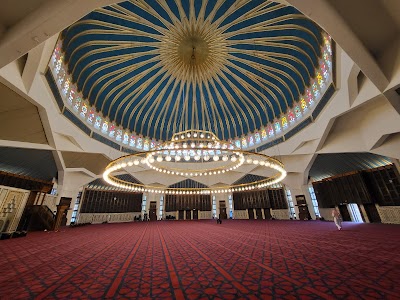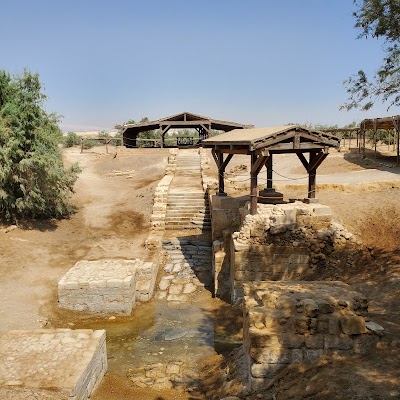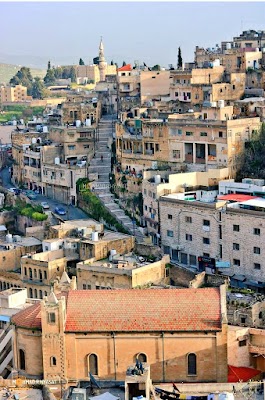Al-Qasr (القصر)
Overview
Welcome to Al-Qasr, an ancient gem nestled in the heart of Amman, Jordan. Also known as the Amman Citadel, this captivating historical site is a must-visit for anyone exploring the rich heritage of Jordan. Perched atop Jabal al-Qala’a, one of the city's original seven hills, the Citadel not only offers a glimpse into centuries of history but also provides breathtaking panoramic views of the vibrant capital city.
The history of Al-Qasr spans several millennia, making it a significant reservoir of historical narratives. Archaeological findings suggest that the site has been occupied since the Bronze Age, around 1800 BCE. Its strategic hilltop location made it an ideal setting for fortified structures throughout various eras, including the Roman, Byzantine, and Umayyad periods. Each civilization that occupied the Citadel left behind impressive architectural and cultural imprints, blending to create a rich tapestry of historical significance.
One of the standout landmarks within Al-Qasr is the Temple of Hercules, constructed during the Roman period around 161-166 AD. This grand temple, dedicated to the Roman hero-god Hercules, remains a testament to the architectural prowess of the Romans. Although largely in ruins, visitors can still marvel at portions of two colossal pillars and fragments of a giant statue believed to be of Hercules. The remnants of the statue's hand, nearly three meters in length, offer a fascinating glimpse into the temple's past grandeur.
Adjacent to the Temple of Hercules lies the Umayyad Palace complex, dating back to the Umayyad period in the 8th century. This complex includes a well-preserved mosque and various administrative buildings, showcasing early Islamic architectural style. The most intact structure is the domed audience hall, meticulously restored to reflect its original splendor. As you wander through the palace, it's easy to envision the grandeur of Umayyad court life and the intricate craftsmanship that went into its construction.
The Citadel also houses the Byzantine Church, underscoring the site's continuous occupation across different eras. Estimated to have been built in the 6th or 7th century, this church features columns and stonework that hint at its past glory. Exploring these ruins allows you to witness the intermingling of various cultural and religious influences that have shaped the region over centuries.
No discussion of Al-Qasr would be complete without mentioning its significance as an archaeological site. The Jordan Archaeological Museum, located within the Citadel, offers a treasure trove of artifacts that provide deeper insights into the region's history. Founded in 1951, the museum's exhibits range from prehistoric flint tools to intricate pottery and jewelry from various epochs, offering a comprehensive overview of Jordan's rich archaeological heritage. Among its notable exhibits are the Dead Sea Scrolls, some of the oldest known biblical manuscripts, which illuminate the religious and cultural practices of ancient communities.
For visitors, the Amman Citadel is more than just a historical site; it is a space where the past meets the present. Walking through Al-Qasr feels like journeying through time, with each ruin and artifact narrating stories that span thousands of years. The site's elevated location also provides an excellent vantage point to admire the contrast between ancient ruins and the sprawling modern city of Amman below. Be sure to bring a camera to capture the stunning views, especially during sunset when the golden light accentuates the timeless beauty of the ruins.
Practical tips for your visit include wearing comfortable walking shoes, as the terrain can be uneven. To enhance your experience, consider joining a guided tour, which can enrich your understanding of the site's historical layers and architectural nuances. Guides are available on-site to provide personalized insights and answer any questions you may have.
In conclusion, a visit to Al-Qasr is a step into a living museum where history is not just seen but felt. It’s a destination that offers profound insights into the ancient civilizations that once thrived here, while also providing a unique perspective on the enduring legacy of Amman. Whether you're a history buff, an archaeology enthusiast, or simply a curious traveler, Al-Qasr promises a splendidly enriching experience that should not be missed during your journey in Jordan.






